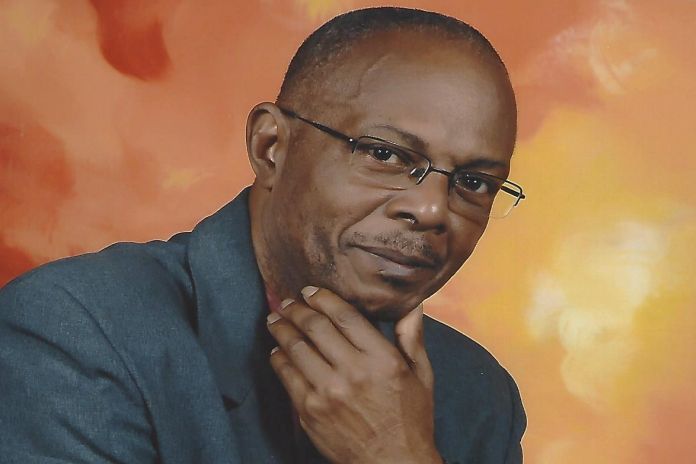By Victor Poyotte
A recent statement by Guy Joseph, the United Workers Party (UWP) government minister, responsible for economic development, that he supports Saint Lucia retaining the London-based Privy Council over the Caribbean Court of Justice (CCJ), because the latter has made too many mistakes is mind-boggling, to say the least. This rather asinine statement reminds us that for all the strides Caribbean people have made towards decolonization and sustainable development in this region over the last 75 or more years, there are still many in authority quite willing to perpetuate the legacy of colonialism.
Small wonder that after 40 years of celebrating independence in Saint Lucia, we have a governor-general serving in the position of head of State representing the Queen of England, a parliament that continues to pledge allegiance to Her Majesty the Queen and an executive that still promotes Queen Birthday Awards. At the same time, the Queen presides over laws in England that discriminates against Caribbean people and heads a government that up to last year, was taking action to repatriate war veterans from the region who risked their lives in World War II to protect the so-called motherland.
For the purpose of this paper, I consider development as a process by which Caribbean societies create growth, achieve progress and positive change for advancement. Sustainable development involves improvements in the physical, economic, environmental, human, social and demographic components. Generally, the purpose of development is to improve the quality of life of the population and to create or expand the well-being of people at the local, regional and international levels. Several regional institutions established over the years have distinguished themselves as world leaders that we can all be proud of.
For the minister to make such an outrageous statement in a post-colonial era suggests to me he thinks that it is only the British judges who are capable of making good legal decisions. By now one would have thought that regional politicians like Guy Joseph would have a better understanding of the place many Caribbean institutions hold in the international arena. He not only speaks like a simpleton overwhelmed by the demands of ministerial office, but he displays a lack of knowledge and a shallowness in analytical capacity to appreciate complex decision making.
One will recall that in the late 1940s when the region attempted to establish the University of the West Indies (UWI) many Caribbean educators advanced similar arguments. However, today, the regional educational institution is ranked among the best in the 600 top universities in the world, the top 40 in Latin America and the Caribbean, in the top Golden Age University Ranking and Impact Ranking in 2020.
Having received my grounding in public administration at the UWI Cave Hill Campus in Barbados and further specialization in public policy and personnel administration at University of Columbia, Missouri, USA, I am in a good position to say that the statement is without foundation. For, although the latter is grouped among the top 10 universities in the USA concerning public administration, I found the UWI curriculum to be more rigorous, challenging and relevant to our needs.
Additionally, there are several reputable regional institutions like the Caribbean Community (CARICOM) the Caribbean Development Bank (CDB) Caribbean Centre for Development Administration (CARICAD) and the Caribbean Examination Council (CXC). At the sub-regional level, the Eastern Caribbean Central Bank (ECCB) and the Organization of Eastern Caribbean States (OECS) are known for sound decision making and action-taking.
It is people who manage human organizations and regardless of whether they operate in the public, private or civil society sectors, they are called upon from time to time, to make a simple or complex decision relating to political, policy, managerial and administrative matters. All leaders no matter what part of the globe they are from are expected to make sound decisions
So, minister Joseph, please do not peddle your idiotic concept and the shameful notion that sound decision making is the exclusive preserve of law lords in Britain or any developed country.
A quick search of the historical records would have shown you that the Caribbean has produced many legal luminaries including Sir Vincent Floissac from Saint Lucia, who were pioneers of the region’s jurisprudence. They not only demonstrated the capacity to make sound legal decisions but successfully challenged the wholesale application of British law in the regional justice system.
It is important to understand that the majority of the English-speaking Caribbean countries that are former colonies of Britain have hand-me-down constitutions based on a modified version of the British parliamentary system of government. These constitutions make provision for a judicial of government which is empowered to interpret laws enacted by the parliament, to determine their meaning and adjudicate to settle disputes. If the members of the final appeal courts (i.e. privy council or CCJ) are to carry out these functions efficiently and effectively, they must in addition to possessing the requisite technical knowledge, have a full understanding and appreciation of the socio-economic and cultural context within which their rulings are given.
While I respect the right to state a personal position on the judicial system, it is my view that as national leaders, ministers of government need to do more by providing a basis on which to give direction and guidance to the average citizen. Instead, minister Joseph chooses to make a blanket pronouncement about the number of errors made by the CCJ to justify support for the privy council without providing any empirical data to back up this baseless and illogical assertion.
Finally, minister Joseph statement is in keeping with the philosophy of leaders with a colonial mentality who believes ‘colonialism has a conscience’ and that the rulings of colonial judges are better than their regional counterparts.
It is also quite apparent that minister Joseph did not take into consideration the cost implications to the majority of his constituents from Castries South-East who at some point in their lives will need to seek redress from the regional appellate court.





